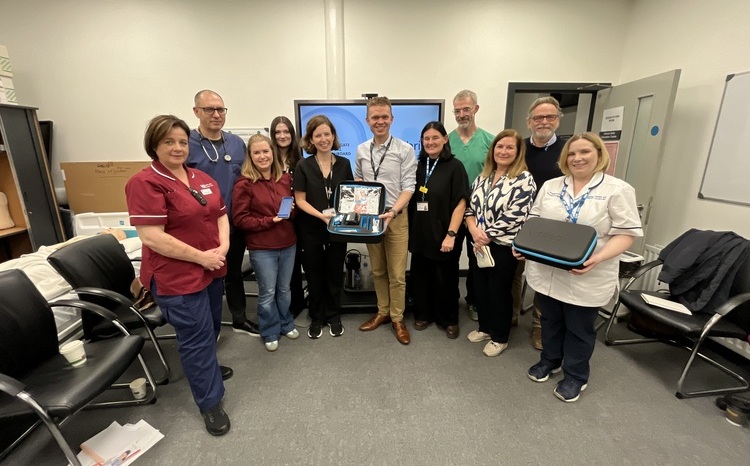Primary care following Fujitsu
- 3 June 2008
 At first glance the news that Fujitsu has been fired as local service provider (LSP) for the South of England would seem to have little impact on primary care as ironically Fujitsu was the only LSP in the country without a contract to provide a primary care system.
At first glance the news that Fujitsu has been fired as local service provider (LSP) for the South of England would seem to have little impact on primary care as ironically Fujitsu was the only LSP in the country without a contract to provide a primary care system.
However primary care IT representatives believe it could prove to be a further step along the path to GPs having a long-term choice of systems, although conversely there are also suggestions that it could also extend the dominance of either of the two remaining LSPs and the drive towards single system solutions.
The immediate impact of Connecting for Health’s decision to terminate Fujitsu’s £1.1 billion contract is that the Southern Programme for IT is currently without an LSP and CfH apparently has no immediate alternative solution to hand.
If the agency seeks to find another company to become the LSP, an option which seems likely, top of the list of candidates will be the two remaining LSPs, CSC and BT, followed by those companies which lost out when contracts were first awarded in 2002. Firms being mentioned include Atos Origin, the firm responsible for Choose and Book nationally and IBM.
Hot money on BT to replace Fujitsu
Ewan Davis, immediate past chairman of the British Computer Society’s Primary Heath Care Specialist Group, argues that the “hot money” is on BT, the current LSP for London. BT has indicated that it would be interested in taking over in the South and a natural alliance between the South and London would seem logical although an earlier alliance between the two LSPs broke down.
For primary care the award of the southern LSP contract to BT would probably widen GPs’ system choice as in London BT is currently in talks to bring in EMIS alongside INPS as its GP solutions.
Davis says: “In the London context it was clear that EMIS users weren’t going to switch to INPS and I am sure the same would apply in the south. I think that whoever takes over the LSP will be seeking to integrate their hospital solutions with any of the systems that GPs choose to take up and that is the way it should be.”
CSC shown it can deliver in primary care
Not everyone, however, agrees that BT is the most likely option. Dr Grant Ingrams, co-chair of the joint IT committee of the BMA and Royal College of General Practitioners (RCGP), argues that CSC is the more obvious candidate because it has so far shown the most appetite for LSP work. Awarding the contract to CSC, already the LSP for the North, Midland and East Programme for IT, would see the LSP taking control of four out of the original five clusters.
Monopoly warning
Dr Ingrams says: “At the start of this process we had five major players with the idea that there would not be a monopoly and now it looks like we could end up with a monopoly, with any of the perceived advantage going.”
CSC has been the most active of the LSPs in implementing primary care systems with more than 700 practices in its areas now using TPP’s SystmOne under an LSP contract. The company has stated that its long term plan is to integrate SystmOne with Lorenzo, its strategic solution for both primary and secondary care.
No choice on offering choice
However even in the north Davis argues that the LSP will eventually have to widen its choice of system beyond one to take account of those practices wedded to other systems, in particular EMIS and INPS.
He says: “There are plenty of people who are quite happy to move to TPP but there will be a hard core of users who are committed to other systems.”
If LSPs in London and the south are offering choice of systems it may also prove harder for CSC not to follow suit.
Primary care choice may provide template
In secondary care industry experts and analysts have suggested that the Department of Health should use Fujitsu’s exit from the programme to introduce acute systems of choice.
This is also the hope of Dr Paul Cundy from the BMA and RCGP’s joint IT committee. He sees this as a natural progression from GP Systems of Choice (GPSoC) and believes such a move would also underline a policy of choice of system across the NHS.
He says: “What will be interesting to see is the response of trusts and PCTs to this. They have faced enormous political pressure to take national programme products but now there is no LSP they might start to work outside the programme and that could set the precedent for other areas.”
A ‘nail the coffin’ for NPfIT?
A long-time critic of many aspects of the National Programme for IT, Dr Cundy argues that Fujitsu’s departure will be “another nail in the coffin” for the programme.
He claims that programmes such as PACS and GP2GP record transfer have succeeded where the promised new systems from LSPs have so far failed to deliver.
He adds: “A total of 150,000 records have now been transferred using GP2GP, that has increased by 50,000 since the end of March, and that is transferring the whole GP record while the Summary Care Record programme is still struggling to get a few details about a few patients onto a website.”
Dr Ingrams also points out that the evaluation on the SCR questioned the value of national systems and queried whether that should be rejected in favour of a series of linked smaller systems.
Questions over where LSPs add value
Dr Ingrams also questions whether LSPs have ever proved their worth as intermediaries between suppliers and the NHS and claims the impact on primary care was to leave it “in the doldrums” until GPSoC appeared.
He adds: “I’ve always thought it bizarre that they wanted to go for a single system anyway as we know from the experience of GPASS in Scotland what happens when you mandate a particular software solution.”
Although not overly hopefully, Dr Ingrams argues that the only advantage of the Fujitsu departure will be if it prompts the DH to rethink its single system approach to NHS IT.
Fiona Barr




